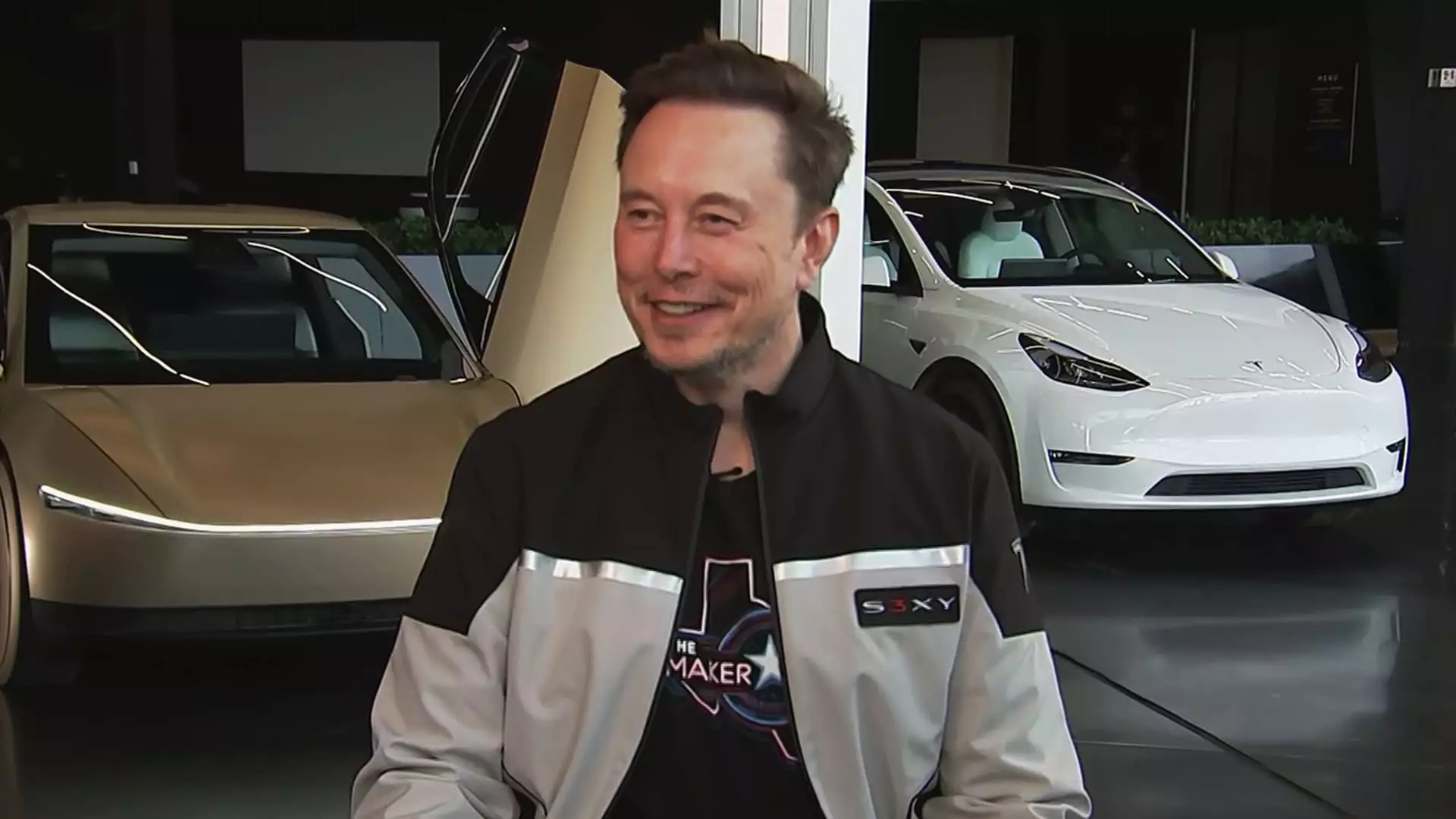In a perplexing twist of market psychology, Tesla’s shares witnessed a remarkable rally of over 20% in May, juxtaposed against an alarming backdrop of dwindling sales figures in critical markets like China and Europe. On the surface, this surge appears illogical, raising doubts about whether investor optimism can be sustained in the face of stark operational challenges. Dogged by declining sales—down 25% in China and nearly 50% in Europe year-over-year—many may question if this momentum can continue or if it’s merely a mirage fueled by the larger-than-life persona of CEO Elon Musk.
Musk’s declaration to refocus on Tesla rather than political engagements might be a strategic effort to assuage investor concerns. However, how much influence does the CEO’s captivating personality—often characterized by volatility—have on the market? Might it overshadow the company’s core operational efficacy? If the past year has shown anything, it is that Musk’s whims can sway the market, sending it into frenzied highs or alarming lows.
The Political Drama: A Burden or an Opportunity?
There’s no denying that Musk’s controversial affiliations—most notably with Donald Trump—have complicated Tesla’s public perception. The former President’s commendation of Musk upon the termination of his role as a “special government employee” raises eyebrows regarding conflicts of interest and accountability. As Musk wrestles with the demands of running a vast business empire that includes Tesla, SpaceX, and recently, xAI, the political narratives surrounding him may risk alienating an increasingly wary investor base.
While some would argue that such political connections could confer preferential treatment, it comes at a cost. Public sentiment is fickle, and Tesla’s ties to the far-right Alternative für Deutschland (AfD) party in Germany have already provoked backlash. Pension fund leaders have expressed discontent, suggesting Tesla’s board rein in Musk’s erratic behavior and insist he devote no less than 40 hours a week to the company. It raises a crucial question: Can businesses thrive in the tumultuous waters of political allegiances, or do such ties ultimately dilute their brand integrity?
Can Innovation Overcome Instability?
Despite these challenges, Tesla remains an undisputed leader in the electric vehicle space. Its ambitious plans for a delayed autonomous ride-hailing service in Austin, set to launch in June, aim to combat competition from established rivals, not least of which is Waymo, which has already racked up over 10 million driverless rides. Yet, one ought to ponder: is an innovative sheen enough to overshadow operational failings? Will a promise of a robotaxi transform investor confidence when current sales figures suggest a diverging path?
In one breath, Musk is painting a rosy picture of autonomous technology, while in the next, alarm bells are ringing from stakeholders concerning the company’s operational failure in key markets. Can innovation continue to sell stock to an increasingly skeptical public? After all, there’s a stark difference between the glorious future Musk envisions and an immediate market context fraught with declining numbers.
Tariffs and Local Strength: Tesla’s Unique Landscape
Interestingly, Tesla has managed to weather economic headwinds better than most U.S. automakers, particularly in light of tariffs. The location of their manufacturing plants in California and Texas has ensured that a greater proportion of their vehicles are produced domestically. This localization could be a significant buffer against both domestic tariffs and pressures from competitors, reinforcing investor confidence amidst stormy seas.
Yet, as much as this might be a trump card, it cannot be taken for granted. Tesla’s ability to capitalize on its domestic strength will be scrutinized against the company’s overarching sales figures, which must get back on a positive trajectory to enhance sustained confidence.
While Tesla’s share rally offers a glimmer of hope, it is imperative to analyze the underlying factors that propel or impede progress. The complexities of Musk’s personality, political involvements, innovative promises, and operational challenges must be understood collectively to offer a more nuanced viewpoint on the future of Tesla.

